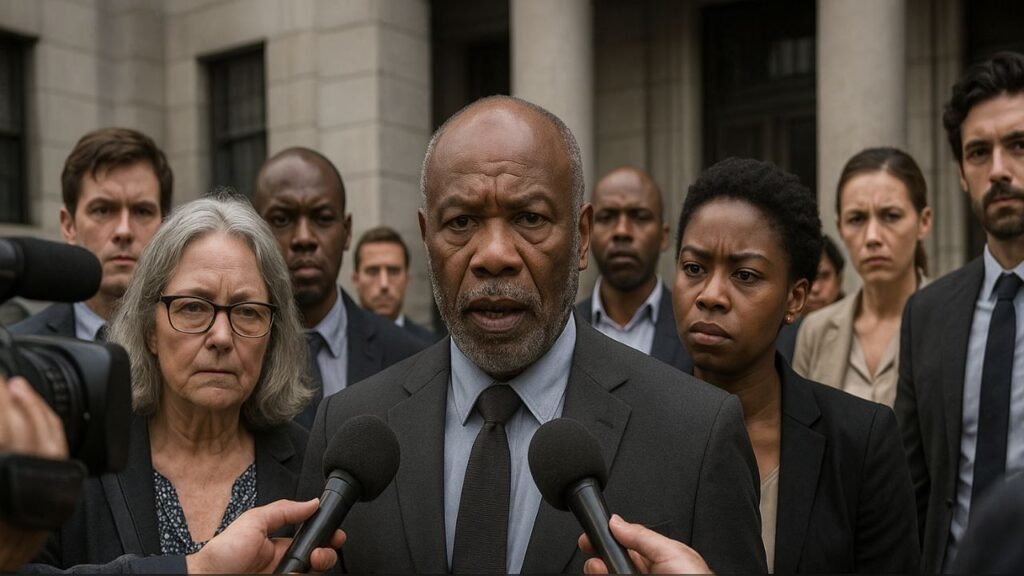Steve Biko Inquest Reopened – The reopening of the inquest into the death of anti-apartheid activist Steve Biko, nearly 48 years after his passing, has reignited national and international debates. Biko, who died in police custody in 1977, became a powerful symbol of resistance against apartheid in South Africa. His philosophy of Black Consciousness inspired a generation to reclaim their dignity and fight systemic oppression. The circumstances surrounding his death, including allegations of torture and brutality, have long been a matter of controversy. Now, as the legal system revisits the case, platforms like BBC News and Al Jazeera report growing interest across social media, particularly on YouTube and Twitter, where younger South Africans are engaging with his story. This renewed attention highlights unresolved questions of justice, accountability, and reconciliation in a country still grappling with the legacies of apartheid.

Why Steve Biko’s Inquest Matters Today
The importance of reopening Steve Biko’s inquest cannot be overstated. Biko’s influence on South African history extends far beyond his tragic death. His writings on Black Consciousness emphasized mental liberation as the first step toward dismantling systemic racial oppression, which shaped the resistance movement of the 1970s. Revisiting his case today is not only about holding individuals accountable but also about reaffirming democratic values in post-apartheid South Africa. According to The Guardian, the inquest serves as a reminder of how state power can be abused when unchecked. It also provides an opportunity for new generations to connect with Biko’s vision of dignity and equality. As the nation faces ongoing challenges of inequality and racial divisions, Biko’s voice remains a relevant and powerful guide for societal transformation.
Social Media Reignites the Debate
One of the most striking features of the reopened inquest has been the massive response on social platforms. On Twitter, hashtags linked to Biko’s name have trended across South Africa, while YouTube channels are uploading both documentaries and opinion pieces revisiting his life and death. This digital revival has made Biko’s legacy accessible to a new audience who did not experience apartheid directly but continue to deal with its aftershocks. Influencers and historians are using platforms to discuss the historical context of his detention and the brutality of the security police. As highlighted by TimesLIVE, the inquest’s reopening has transformed Biko’s story into a viral moment that resonates with today’s struggle against corruption, poverty, and racial inequality. The online space is giving ordinary South Africans a voice in the dialogue, ensuring Biko’s memory is not confined to history books.
The Legal and Political Implications
Reopening the Steve Biko inquest also carries deep political and legal consequences. For decades, questions have lingered about the accountability of state officials who were involved in his arrest and subsequent death. While previous inquiries concluded with limited action, this new process may lead to a reassessment of evidence and a push for truth and justice. Legal experts argue that the inquest highlights both the failures of transitional justice mechanisms and the ongoing need for accountability in South Africa. Reports from Reuters note that this legal step could open doors for further investigations into other apartheid-era crimes, reinforcing the importance of remembering and addressing the past. Politically, the inquest has sparked debates within parliament and civil society about how the nation deals with historical trauma while facing current socio-economic challenges.
Relevance of Biko’s Vision in Modern South Africa
Beyond the legal proceedings, Steve Biko’s ideas remain crucial in understanding South Africa’s current identity crisis. His emphasis on pride, unity, and self-reliance among Black South Africans resonates in today’s struggles for equality, land reform, and fair economic participation. Universities still teach his works, and activists continue to reference his philosophy in campaigns against systemic racism and poverty. The renewed focus on Biko serves as both a cautionary tale and an inspirational call. As covered by The New York Times, the debate reignited by the reopened inquest is about more than a single man’s death; it’s about the unfinished project of building a just and equal society. For younger generations, Biko’s story is not just history—it’s a living reminder of resilience, sacrifice, and the need for constant vigilance in defending human rights.







